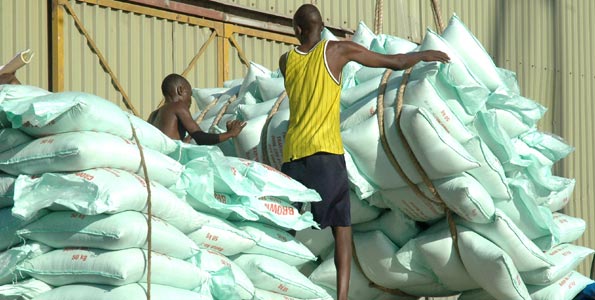Arusha meeting key to breaking deadlock over EPAs trade deal

Business Daily | Friday, November 27 2009
Arusha meeting key to breaking deadlock over EPAs trade deal
By George Omondi
Representatives of East Africa Community governments and the private sector hope to use a two-day meeting that starts in Arusha on Friday to break the deadlock with the European Commission (EC) over Economic Partnership Agreement (EPAs) negotiations.
Organisers of the forum say the current impasse can be solved if the private sector leads the talks, currently led by government representatives.
The East African Business Council (EABC), a private sector business lobby, and the TradeCom Facility, a programme funded by the European Development Fund to provide technical assistance to the African, Caribbean and Pacific (ACP) group, have arranged the discussion.
“The private sector in the region has little knowledge of EPA negotiations, how the new trade regime will impact to their businesses and how best they can play an active role in ensuring that private sector interests are duly taken on board,” said Mr Adrian Njau, the project coordinator
In 2007, the ACP, through their various economic trading blocs, opened fresh talks with EU countries in the hope of concluding the current Framework Economic Partnership Agreement (FEPA) with EC by July 31, 2009.
The parties have since 2002 been looking for a permanent instrument to replace the non-reciprocal Cotonou agreement that has since been rejected under the World Trade Organisation trade rules.
To date, however, the signing of the instrument still hangs in the balance after a number of contentious issues that include development cooperation, the most favoured nation clause cropped up.
At the moment, trade with the European Union is governed by an interim EPAs which expires by the end of this year.
ACP states have particularly been passionate about the development component of the deal, saying EU countries must undertake to compensate them for the loss of revenue and interruptions of industrial activities that is expected to result from opening up their borders to free trade.
For instance, a Kenya Institute of Public Policy Research and Analysis study commissioned by the government in 2005 indicates that the country will lose Sh6 billion in custom tax revenues when it opens up its borders to European goods, but trade ministry officials maintain that much more will be earned in the increased trade with the West.
EU head of delegation in Nairobi Eric van Der Linden says EC has done its part and that it is up to the ACP states to come up with a common position when the interim instrument expires on December 3.
The FEPA contains market access offers on trade in goods made by both EAC and EC to each other, development cooperation issues and fisheries and provides space for further negotiations leading to a comprehensive EPA.
It excludes sensitive products such as agricultural products from liberalisation as well as a clause to shelter growing industry from external competition.
EU’s market access offer consists of duty free and quota free access to imports from EAC partner states except for rice and sugar for which a transitional arrangement was put in place.
Even under FEPAs, exports of rice will continue to attract a tariff until January 2010 while exports of sugar attracted a tariff until October 1, 2009.
EAC market access offer to the EU, on the other hand, consists of 82 per cent liberalisation of imports from the EU over a 25 year transition period
Apart from EAC countries which have failed to sign the instrument so far, EPAs have also met stiff resistance with only Caribbean countries under the Caribbean Forum Configuration able to conclude negotiations for full EPA.





